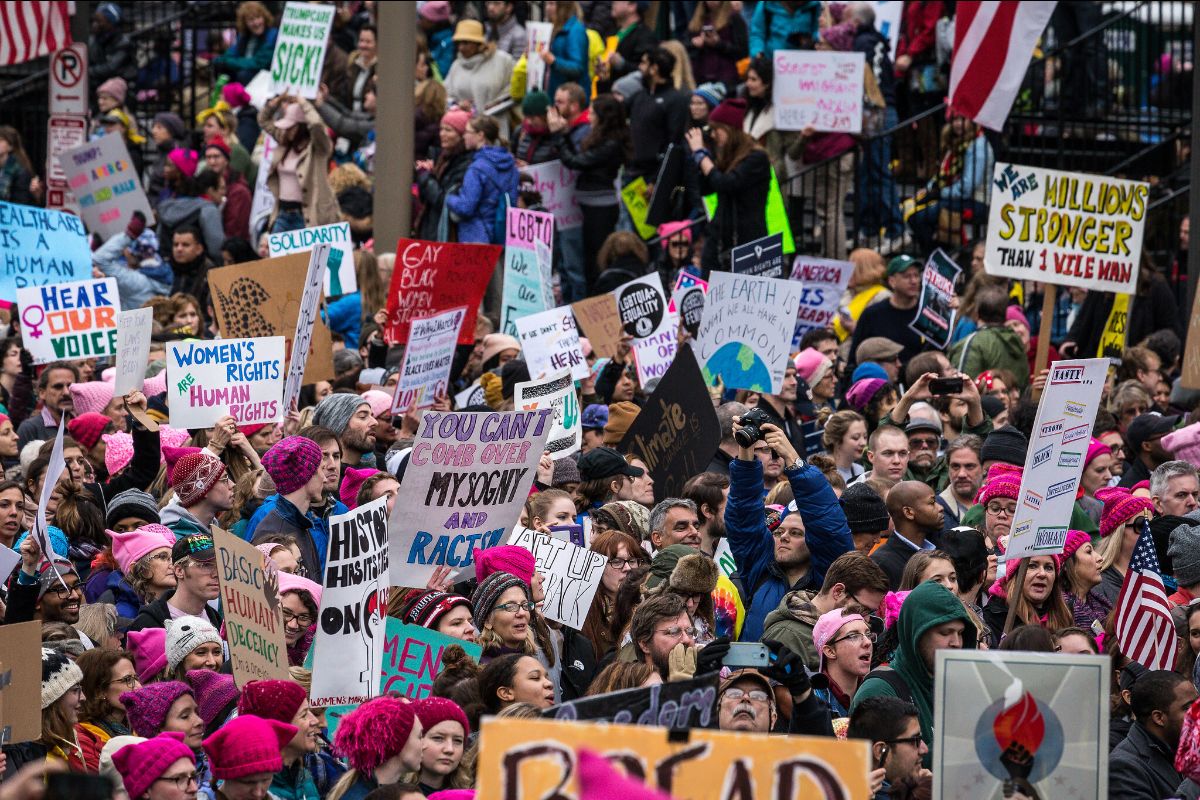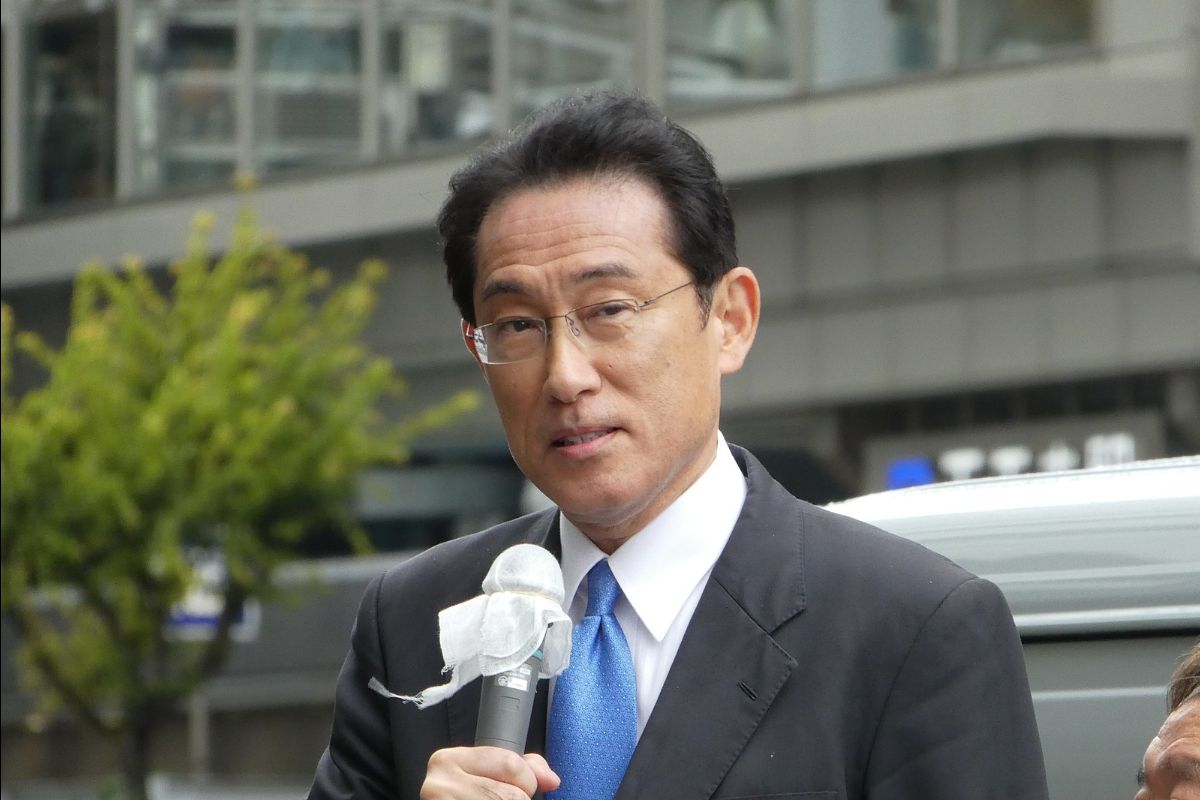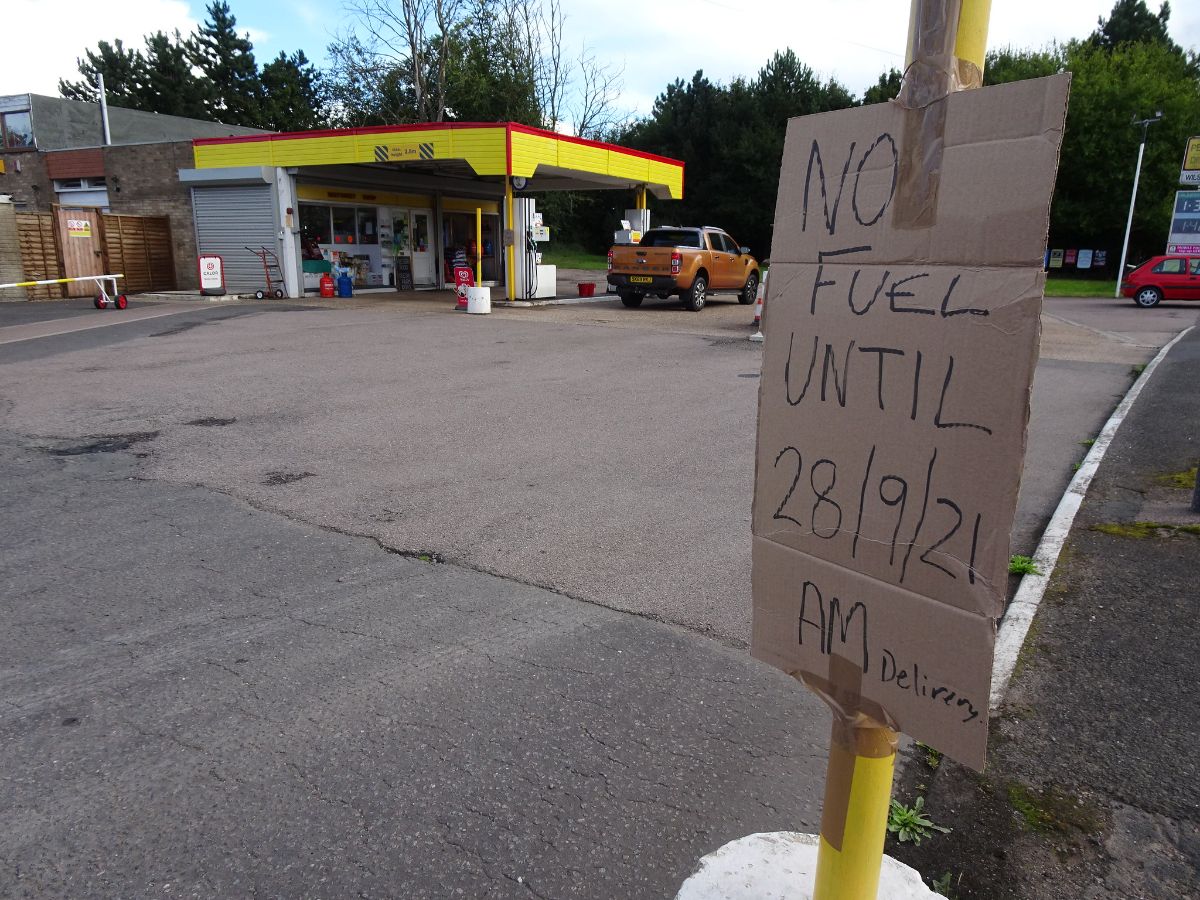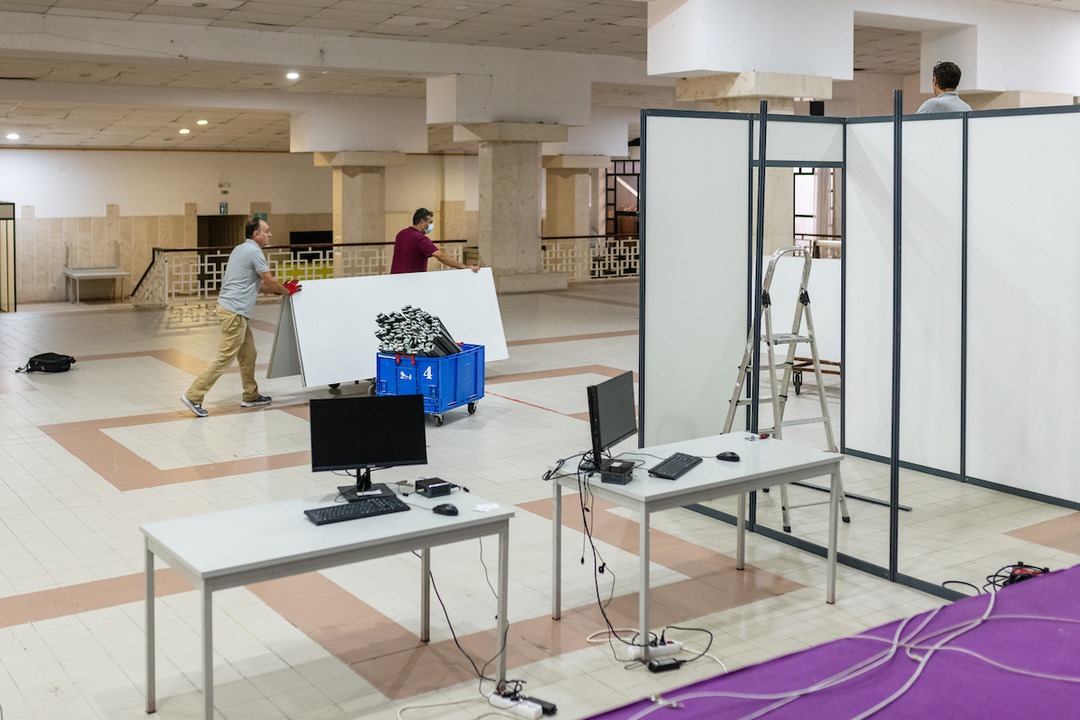Top photo: At least three city-run vaccination centers in Lisbon, Portugal, have closed down this week as more than 80 percent of the country’s population has been vaccinated against coronavirus.
(Photo: Câmara Municipal de Lisboa)
Welcome to Factal Forecast, a look at the week’s biggest stories and what they mean from the editors at Factal. We publish our forward-looking note each Thursday to help you get a jump-start on the week ahead. If you like what you see, you can subscribe for free.
A look ahead:
Oct. 1/ Portugal lifts coronavirus restrictions: Portugal is set to lift nearly all remaining coronavirus restrictions on Friday, as the country with the world’s highest vaccination rate.
- What’s happened so far: In July 2021, the government announced a three-phase plan to ease coronavirus restrictions. In August, localized curfews ended, allowing restaurants, stores and cultural venues to remain open till 2 a.m. In September, outdoor mask mandates ended and the number of people present in public events was increased to 75 percent capacity. Now, with more than 80 percent of the population vaccinated, the country will allow full occupancy in restaurants and cultural venues, and nightclubs and bars will reopen for the first time since March 2020.
- The impact: Vaccine certificates or a proof of negative test result will still be required for air or sea travel, major cultural or sporting events and at nightclubs and bars, but they will not be mandatory in hotels and gyms. As Portugal enters this new phase, Prime Minister Antonio Costa in a news conference reminded citizens of their personal responsibility, adding that “the pandemic is not over.”
Oct. 2/ Women’s March for Reproductive Rights: The Women’s March plans to hold rallies across all 50 U.S. states on Saturday in response to controversial legislation introduced in Texas that significantly limits women’s access to abortion.
- What’s happened so far: A law was enacted in Texas on Sept. 1 banning all abortions after fetal cardiac activity is detected — at around six weeks pregnancy. The law does not make any exceptions for cases of rape or incest. Similar laws have passed in other states, but Texas is the first state where it has been implemented after the Supreme Court refused to block the new legislation in a 5-4 vote.
- The impact: The march, which will be the first in-person Women’s March since the Trump presidency, is set to happen two days before the Supreme Court reconvenes on Oct. 4. The event is expected to draw large crowds, after the first Women’s March, held in January 2017, made history as the largest single-day protest in U.S. history. It will also be accompanied by supporting rallies around the world.

Oct. 2/ Qatar election: On Saturday, Qatar’s ruling family will allow a partial election of its 50-year-old legislative body, the Shura Council. The exercise will have almost no impact on power dynamics, but is highlighting discrimination in one of the world’s “least free” countries that also happens to be one of the biggest natural gas producers.
- What’s happened so far: Qatar boasts it is taking a step in increasing public participation in decision making, though Shiekh Tamim bin Hamad will retain near absolute control, according to the country’s recently amended constitution. The country has a population of 2.9 million people, of which only about 11 percent of the population are estimated to be citizens. Of those, only “native Qataris” have a right to vote or run for one of the 30 seats out of 45-member parliament. Sheikh Tamim appoints the rest.
- The impact: The process is shedding light on laws that not only give disproportionate power to the slim minority of the country’s population who are citizens, but discriminate against thousands of Qataris themselves. Qatari law gives more rights, in voting and even employment, to so-called “native” Qataris than “naturalized” ones. Members of the country’s Al-Murra tribe, who are classified as “naturalized,” recently protested their exclusion, prompting an immediate crackdown by security forces.
Oct. 4/ Catalan separatist leader attends hearing in Italy: Catalan Independence leader Carles Puigdemont will stand trial on the Italian island of Sardinia on Monday to decide on his extradition to Spain after losing his immunity as a EU lawmaker.
- What’s happened so far: The former president of Catalonia’s government was arrested in Sardinia’s Alghero on Sept. 23, where he was invited to attend a cultural event, and released a day later after promising to appear at court on Oct. 4. Puigdemont, who has lived in Belgium since he fled Spain in 2017, is wanted in the country for prosecution on charges of secession and misuse of public funds after celebrating an illegal independence referendum for Catalonia.
- The impact: This is the third time Puigdemont has been arrested in a EU member state to face a potential extradition. In previous arrests, the extradition order was rejected due to incompatibilities between the Spanish penal code and the ones of the prosecuting EU countries. It is unclear if Puigdemont will be extradited this time. Although the Italian justice will consider the crime of sedition, and the judge could therefore agree that the Spanish justice has the right to prosecute him, the European Court of Justice will have to validate the decision given Puigdemont’s EU lawmaker status. His lawyers will also try to argue that his detention violates some of his rights as a member of the European Parliament.
Oct. 4/ U.S. Supreme Court resumes in-person arguments: The U.S. Supreme Court will hold in-person oral arguments on Monday for the first time in the coronavirus era, but on a limited basis.
- What’s happened so far: The nation’s highest court called off oral arguments in March 2020 due to the coronavirus pandemic. Since then, the justices have been hearing oral arguments by conference call for the first time in history. Those calls were streamed online and on C-SPAN as they happened. That practice will continue because the only people allowed in the courtroom will be the justices, lawyers, reporters and essential court personnel. It will also be Amy Coney Barrett’s first time working from the Supreme Court — she was confirmed just days before the 2020 election but will be sworn in, ceremoniously, this week.
- The impact: When the court’s term begins on Monday, it will be the first time all of them work together in-person. But it will be safer than before because all nine justices have been vaccinated. They will hear several high-profile cases, including a challenge to Roe v. Wade because of a law in Mississippi that bans abortion after 15 weeks and a case that considers whether New York can restrict people from carrying concealed handguns in public. This could also be the final session for 83-year-old Justice Stephen Breyer. Many progressives have called for him to step down so President Joe Biden can nominate someone younger.
Oct. 4/ Hearing for Palestinian officers in death of Abbas critic: The trial of 14 security officers charged with the beating death of political activist Nizar Banat will continue with a hearing on Monday.
- What’s happened so far: Banat, a prominent critic of the Palestinian Authority, died in police custody in June, with an autopsy later confirming he suffered blows to the head that indicated an “unnatural death,” echoing claims made by his family that he was beaten during his arrest. Banat’s brother, Ghassan, says the security officers charged are being used as “sacrificial lambs,” claiming the Palestinian Authority is shielding higher ups who gave the initial orders. The critic’s death has also triggered rare protests, amid escalating tensions since planned legislative and presidential elections were canceled in April by President Mahmoud Abbas.
- The impact: Critics have claimed Banat’s death is indicative of systemic issues within the regime, which has grown increasingly aggressive against dissent, while the authority blames “undisciplined” forces for an isolated incident.

Oct. 4/ Japan parliament expected to convene to vote in PM successor: Japan’s parliament will likely convene on Monday in a special parliamentary session to confirm former foreign minister Fumio Kishida as the country’s new prime minister, after he was elected head of the ruling Liberal Democratic Party in a tight runoff vote against rival Taro Kono.
- What’s happened so far: Incumbent Prime Minister Yoshihide Suga came to power following the health-related resignation of his predecessor Shinzo Abe, but his term has come to an end after his management of the coronavirus pandemic caused his popularity to plummet. Even though Kishida enjoys only moderate popular support, the Liberal Democratic Party holds a majority in parliament, making his election all but certain.
- The impact: After the likely confirmation vote Fumio Kishida will take office and inherit a laundry list of problems, including recovery from the coronavirus pandemic, strained relations with a rising China, domestic economic issues, and North Korea and its nuclear program. On top of all this, Japan is set to have an election by late November, meaning parliament is likely to be dissolved in mid-October to allow for a campaign in which he will lead the Liberal Democratic Party that has dominated post-war Japanese politics.
Oct. 5/ EU leaders meet in Slovenia: On Tuesday, European heads of state and government are expected to discuss ongoing tensions between the EU and the United States over a submarine deal between the United States, United Kingdom and Australia in Slovenia.
- What’s happened so far: After the three countries announced a pact binding the three countries’ defense industries, the United States was accused of misleading France and showing “lack of transparency and loyalty.” France recalled its U.S. and Australian ambassadors for “consultations” following the new deal, accusing Australia of “breaching trust” after abandoning a multi-billion-dollar order for French submarines in favor of this new accord.
- The impact: EU leaders will discuss the row between France and the AUKUS countries ahead of a summit focused on the Western Balkans in Slovenia, which is currently holding the EU presidency. The summit follows the EU Commission president’s comments on the rift, saying France has been treated in an “unacceptable” way. German officials have also said the submarine row is “a wake-up call for everyone in the EU.” Meanwhile, meetings between French, British and U.S. officials have taken place in a bid to restore relations.
What else matters:
Ethnic Serbs block border in Kosovo: Ethnic Serbs in partially recognized Kosovo have now blocked the two main border crossing roads into Serbia for a week in response to a Kosovar law emulating a Serbian one that bars recognition of each other’s license plates. The border blockages have inflamed tensions between the two, threatening a flareup in the volatile region that witnessed a brutal war in the late-1990s characterized by ethnic tensions between Kosovar Albanians and Serbs. Following calls for calm from international stakeholders such as the European Union and NATO, the EU’s special representative for both countries announced on Thursday that a temporary agreement to end standoffs at the border has been reached. Both parties have agreed to remove all blockages and dissolve special forces deployed at the border crossings starting Saturday.
- Watch for: Whether the two countries will adhere to the agreement is yet to be seen. The EU has vowed to form a working group for a “permanent solution,” with the first meeting expected to take place in late October. Until a lasting solution is reached, continued direct action of blocking border crossings between Kosovo and Serbia is expected, as well as unrest among the minority Serb population in northern Kosovo, such as additional attacks against interior ministry buildings after grenades were thrown at one such complex. The situation remains volatile — Serbia continues to consider Kosovo a wayward province under its control and has refused to recognize such a right since Kosovo declared independence in 2008 — and with Kosovar and Serbian forces in close proximity at a heightened alert level and the ethnic violence of the 1990s a fresh memory, one incident could trigger a broader clash.

U.K. energy crisis: A lack of truck drivers partly caused by Brexit and the coronavirus pandemic has led to widespread shortages at British gas stations, with government ministers warning that the situation has been significantly worsened by panic-buying from consumers. Over the weekend, BP said that a third of its stations had run out of the main two grades of fuel, while the Petrol Retailers Association said 50 to 90 percent of the almost 5,500 stations owned by its members had reported running out, with the rest soon to follow. In response to the crisis, the government has already said it will offer temporary visas to 5,000 foreign fuel tanker and food truck drivers until Christmas Eve to limit disruption in the run-up to the holidays, and it will suspend competition laws to enable companies to work together on easing shortages. A survey carried out by the Road Haulage Association estimated there is a lack of more than 100,000 qualified drivers in the country, including thousands from EU member states who were previously working in the U.K.
- Watch for: The government has attempted to brush off concerns over the issue, insisting that refineries and storage facilities have enough fuel to secure supplies. About 150 soldiers have been mobilized to drive a reserve fleet of fuel tankers, under a plan conceived years ago as part of the U.K.’s preparations for a no-deal Brexit. The shortage also comes as consumers are facing a steep rise in household energy bills caused by a natural gas supply crunch that has driven electricity prices to record highs across Europe. Seven smaller energy suppliers serving a combined 1.5 million households in the U.K. have gone out of business during the last six weeks amid the record gas market prices.
Extended outlook: What’s on our radar in the coming weeks
Oct. 1: Expo 2020 Dubai begins; Portugal lifts coronavirus restrictions; U.S. government funding runs out if no deal reached
Oct. 2: Women’s March for reproductive rights; Qatar’s first legislative elections
Oct. 4: Catalan separatist leader to attend hearing in Italy; Palestinian officers go on trial over death of Abbas critic; Japan parliament expected to convene to vote in Suga successor; U.S. Supreme Court resumes in-person arguments
Oct. 5: Soyuz MS-19 mission launch; EU leaders expected to discuss AUKUS at meeting in Slovenia
Oct. 6: UEFA Nations League Finals in Milan and Turin, Italy
Oct. 8: 2021 Nobel Peace Prize winner announced; Czech parliamentary elections
Oct. 10: Election for Iraqi Council of Representatives
Oct. 12: NHL regular season begins; EU-Ukraine summit
Oct. 14: Giulio Regeni murder trial in Italy
Oct. 17: Cape Verde presidential elections
Oct. 18: Robert Durst sentencing hearing
Oct. 19: NBA regular season begins
Oct. 23: Rugby League World Cup in England
Oct. 24: Uzbek presidential election
Oct. 25: Trial of Metropolitan police officer charged with kidnap and murder of Sarah Everard
Oct. 26: ASEAN Summit in Brunei

